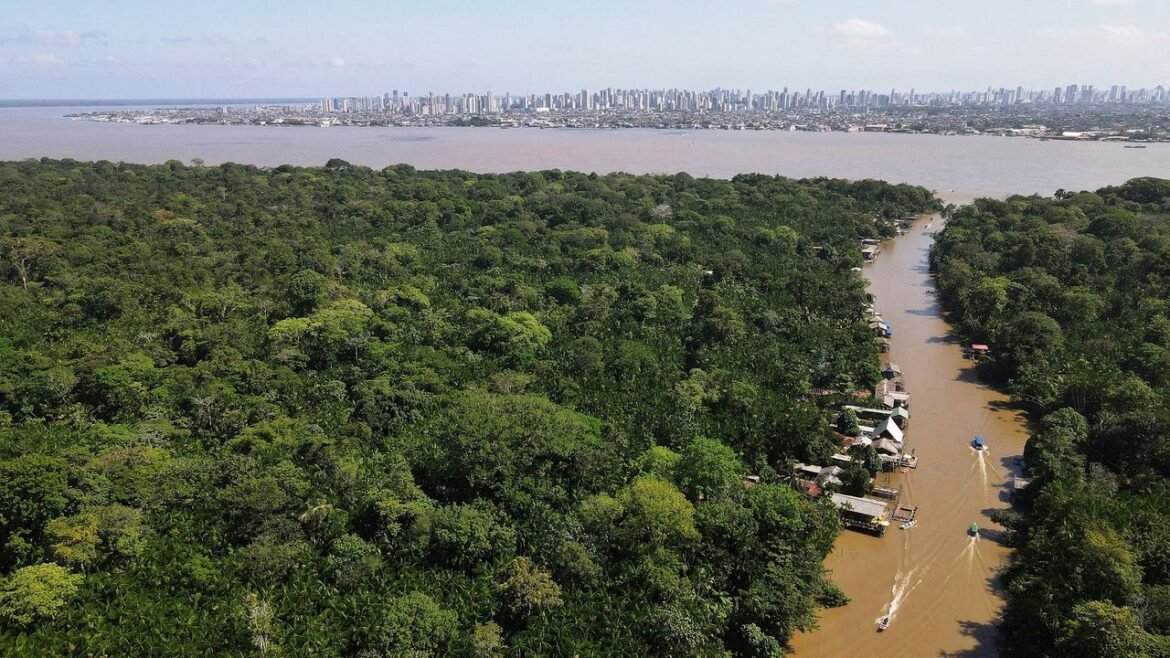In the spring of 1992, President George H. W. Bush flew to Brazil to reassure the world. Delegates from more than a hundred and seventy countries had gathered in Rio de Janeiro to hammer out a global treaty on climate change. The United States was, at that point, far and away the largest emitter of greenhouse gases, and, in negotiations leading up to the summit, it had widely been seen as dragging its feet.
“When our children look back on this time and this place, they will be grateful that we met at Rio, and they will certainly be pleased with the intentions stated and the commitments made,” Bush said, shortly after signing the treaty. But, he added, “They will judge us by the actions we take from this day forward.”
This week, representatives of just about every country in the world—there are now more than a hundred and ninety—are gathering for what amounts to a Brazilian homecoming. This year’s climate-negotiating session, or COP (short for Conference of the Parties), is the thirtieth since the treaty negotiated in Rio went into effect, and it’s taking place at the mouth of the Amazon River, in the city of Belém. For COP30, the U.S. won’t be sending its President or any other high-ranking officials to offer encouragement. On the contrary.
In a recent speech to the United Nations, President Donald Trump called climate science “the greatest con job ever perpetrated on the world,” and he has set himself against all efforts to limit warming, at home and abroad. He has cancelled dozens of clean-energy projects (including some that were mostly finished), forced coal-burning power plants due for retirement to remain open, and gutted the agencies that monitor changes to the oceans and atmosphere. And he’s bullying other nations into following suit. Last month, at a meeting in London, Trump Administration officials went so far as to threaten international diplomats negotiating a pact to cut emissions from shipping. According to the Financial Times, some of diplomats were warned that, if they voted for the pact, they might find themselves unable to enter the U.S. in the future. The Brazilian delegation complained of tactics “that should never be used among sovereign nations.” It added, “We hope that this is not replacing negotiations as the normal way for us to make global decisions, for otherwise, there will be no more decisions to be made.”
The original climate treaty, which was approved by the U.S. Senate, without debate, committed the world to the vital if vague goal of avoiding “dangerous” warming. By many measures, that threshold has already been breached. The year 2023 was, by a wide margin, the warmest on record, until it was exceeded by 2024. A report issued last month by more than a hundred and fifty scientists warned that the world’s coral reefs are fated to die off; even under the “most optimistic” scenarios, ocean temperatures will be too high for them to survive. The Amazon rain forest and the Greenland ice sheet, the report stated, may similarly be destined for “irreversible collapse.”
In the first six months of this year, the cost of climate-related disasters in the U.S. set a new record: a hundred and one billion dollars. (Though the Trump Administration has stopped keeping track of such costs, the nonprofit group Climate Central has continued to gather the data.) Worldwide, every other week seems to bring a new climate-related crisis. Hurricane Melissa, which roared across Jamaica, Cuba, and Haiti last month, exploded from a Category 1 storm to a Category 5 in less than a day. Melissa, which killed at least seventy-five people, was “kind of a textbook example of what we expect in terms of how hurricanes respond to a warming climate,” Brian Soden, a professor of atmospheric sciences at the University of Miami, told Wired. A second scientific report released last month announced the start of a “a grim new chapter for life on Earth.”
Increasingly, the response to all this has seemed to be a dulled acceptance. In the lead-up to this year’s COP, every country was supposed to announce an emissions target for itself, extending through 2035. The U.S.submitted such a target in the last month of the Biden Administration; it is now considered largely meaningless. Last week, China submitted its target, which was widely described as inadequate. Brazil’s target, too, has been criticized as insufficient. And, just a few weeks ago, the Brazilian government decided, for the first time, to allow oil drilling near the mouth of the Amazon. Critics called the move “an act of sabotage against the COP.” Marina Silva, the country’s environmental minister, defended the move, saying that Brazil has so far only approved oil exploration in the area and that, in any case, oil drilling is “perfectly compatible” with Brazil’s long-term plans to transition away from fossil fuels.



